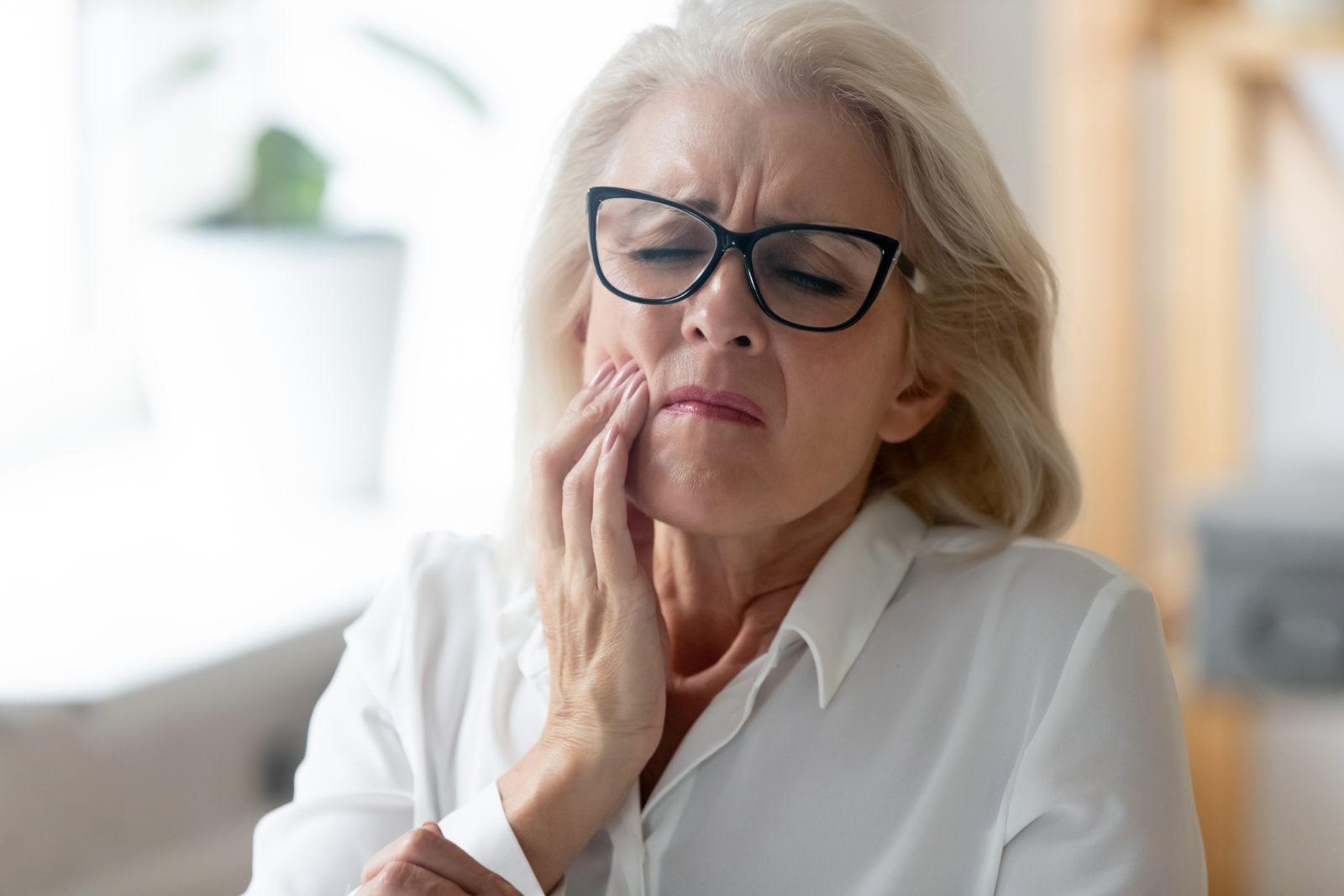Grinding Your Teeth? Here’s Help

Do you wake up with a tired or sore jaw in the morning? It could be a sign that you’re grinding or clenching your teeth at night. Over time, this can damage your teeth and lead to jaw problems. It can cause teeth to crack, loosen, and even fall out.
Teeth grinding and clenching—also called bruxism—can cause serious issues if left untreated. And people aren’t always aware that they’re doing it.
“Someone may not know they grind their teeth at night until they’re told by a bedtime partner,” explains Dr. Dena Fischer, a dental health expert at the National Institutes of Health (NIH).
You can grind your teeth during the daytime, too—although clenching your jaw is more common. Some experts think of daytime and nighttime bruxism as separate conditions. They may have different causes.
Your dentist may spot the tell-tale signs of teeth grinding and clenching. These can include wear and early cracks on the outer layer of the tooth. Teeth grinding and clenching can cause a dull headache or tired jaw muscles. Often, nighttime teeth grinding isn’t diagnosed until there are significant symptoms.
Teeth grinding and clenching while awake is easier to recognize. It’s thought to be caused by stress and anxiety. Some people may also grind or clench their teeth while deep in concentration. Once you realize that you’re doing it, it’s important to figure out when and why.
Situations that are stressful or frustrating can trigger the behavior. “People often mention that they grind or clench their teeth while driving in traffic,” Fischer says.
Self help for bruxism
How do you treat bruxism? Fischer helps patients by having them set reminders to check their habits. People who grind or clench their teeth during traffic may find it helpful to put a sticky note on the wheel reminding them to relax their jaw. Setting an alarm to go off regularly at your desk can help if you tend to clench your teeth while deep in thought. Here are some other ideas:
- Try to reduce your daily stress and use relaxation techniques such as yoga or meditation.
- Practice good sleep habits. Seek treatment for sleep problems.
- Apply ice or wet heat to sore jaw muscles.
- Avoid eating hard or dense foods. Don’t chew gum.
- Find ways to relax your face and jaw muscles throughout the day. The goal is to make facial relaxation a habit.
- Schedule regular dental exams. Your dentist can spot early signs of teeth grinding.
Working with a dentist
Teeth grinding and clenching at night are usually treated with a mouthguard. A dentist can make you a custom-fitted guard to protect your teeth. You also may need to be tested for sleep disorders.
Sometimes dentists will recommend reshaping the surfaces of your teeth to change your bite. But Fischer advises against approaches that permanently alter your teeth. She advises seeking a second opinion and trying less invasive treatment options first.
Source: NIH News in Health
![Charlesgate [logo]](https://www.charlesgate.net/wp-content/uploads/sites/218/2016/12/logo-new.png)